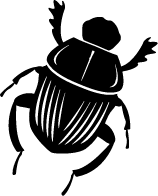- “Construction mafias” — in some cases armed — remain widespread, demanding business to let some water infrastructure projects continue, water and sanitation director-general Sean Phillips says.
- Changes within the department of water and sanitation could see an increased number of municipalities being hauled to court over poor service delivery.
- Municipal disfunction, says Phillips, is “what keeps me up at night”.
In March last year, minister of water and sanitation Senzo Mchunu admitted to Parliament that many municipalities were failing to deliver on their most basic function: access to water.
“The situation is generally deteriorating,” he warned.
The national department oversees the management of South Africa’s water, leading large programmes that manage supply, like the Lesotho Highlands Water Project, or dams that dictate the country’s ability to store water.
It has little leverage at local level, where delivery should take place but often doesn’t.
Under Mchunu, the department is considering changes in how it monitors compliance that could see more municipalities taken to court for failing to provide safe, reliable water supplies.
Also on the cards are amendments to national legislation to enable the department to better intervene in failing municipalities.
The department’s director-general Sean Phillips sat down with amaBhungane to talk about why so many municipalities just can’t seem to get basic water and sanitation right, what the department intends to do about it, and why people with AK-47s are turning up on construction sites.
You’ve just completed your first year in office. What do you think have been the most significant achievements?
Phillips: “The Department of Water and Sanitation has been through quite a difficult last five or 10 years. It was a site of state capture and we’ve got several cases being investigated by the Special Investigating Unit (SIU).
For example, there was a case of the procurement of SAP software licenses by the department to be deployed at water boards when water boards already had their own software.
There has been an investigation by the SIU and a long disciplinary case against one of our deputy director generals, who was recently dismissed. SAP entered into a settlement agreement with the SIU and agreed to pay us back about R500-million initially and then another R200-million. So we got back almost all the money spent on those licenses.
When Minister Senzo Mchunu started in August 2021, he found that the department had a succession of different ministers and a high turnover rate of officials, which caused a lot of instability in the department.
You could say it also created fertile ground for state capture.
This is a small extract from a very in depth interview with Sean Philips written by for the amaBhungane Centre for Investigative Journalism.
Read more on this exclusive story from the amaBhungane Centre for Investigative Journalism HERE

















